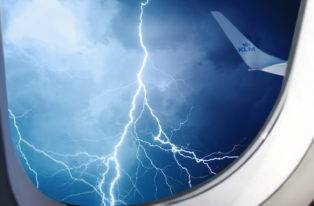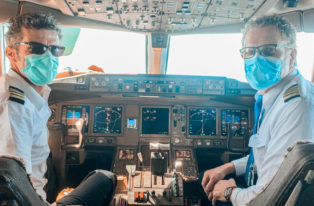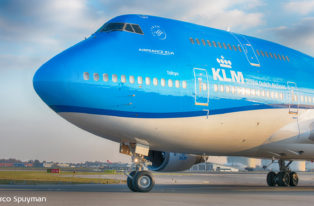The Big Red Book
Whenever you hear KLM cabin crew members refer to the Big Red Book, don’t confuse this with the writings of Chairman Mao. Our Big Red Book is the Flight Safety and Security Manual, which is big and bright red.
For two days every year, our knowledge of airline safety and security is tested. The first day is all about the aircraft types we work on (a maximum of three). On the other day we cover the general procedures. If we don’t pass the exams, we are not allowed to fly as a crew member until we prove that we have everything covered. Although giving good service is a very important part of our job, in the end our main task on board is to take care of the safety of our passengers. So my colleagues and I take these exams very seriously.
So why do I always put off picking up that book and start reading it until the very last moment?
In a few days I’ll have my Type Recurrent, as we call the exams concerning aircraft types. Luckily I have just moved house, so I’ve kept myself busy with sorting out the last few packing cases in the last few days. But every year around this time I find jobs that really need to be done before picking up the Big Red Book. Even odd jobs I hate to do. Like cleaning up the attic. Or ironing. If necessary, I will even iron jeans, dishcloths and handkerchiefs to keep myself away from the Book.
I know the Big Red Book by heart. I’ve read it a dozen times. Wake me up in the middle of the night and I will tell you what to do in any emergency situation. The same is true for all of my colleagues. We are literally drilled.
Maybe that’s what makes it hard to pick up the Book. We sometimes even dream of the contents, and are updated with changes in procedures all year through. But I don’t think any of my colleagues would go for the Flight Safety Recurrent exams before reading it, just to make sure.
When I’ve finished polishing this silver cutlery, which I never use anyway, I really will pick up the Big Red Book. I promise.
Caroline











